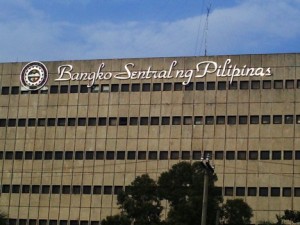HAYWARD, California—The state’s beverage association and Pepsi Beverages Company of Hayward answered critics who accuse the soft-drink industry of promoting obesity though high-calorie sugary drinks.
At a media tour of Pepsi’s bottling facility in Hayward on July 30, Chuck Finnie, a spokesman for the American Beverage Association in California, said that the industry has diversified its products to give consumers “a lot of choices” when it comes to caloric intake from soft drinks.
Much of the industry’s growth in California, Finnie added, “has been fueled by its responsiveness to the needs of Californians” through development of more low- and no-calorie beverages, smaller portion sizes, clear calorie labeling and shipping fewer calories to schools.
He argued that obesity rates attributed to the industry is on “a downward slope, the overall obesity rate is still going up—something is going on here.”
“Our company’s success in the state is based on responsiveness to California consumers and partnerships we’ve built with a diverse array of retailers and suppliers,” said Greg Haskin, senior director of government relations for PepsiCo.
Haskin added, “until a broad debate on caloric intake happens, to include ice cream, donuts, etc., government shouldn’t try to narrowly target our industry with policies that tackle obesity.”
The city of Richmond, California, tried in vain to levy additional taxes on soft drinks.
In New York City, Mayor Michael Bloomberg asked the state’s highest court to review a decision striking down a local ban on sales of large-sized sugary soft drinks.
New York’s leaders in Sept. approved Mayor Michael Bloomberg’s plan to cap the size of sugary drinks sold in restaurants, stadiums, movie theaters and arenas at 16 ounces a cup.
But a unanimous panel of the New York State Supreme Court’s Appellate Division, on July 30 upheld Justice Milton Tingling’s ruling striking down the plan, saying the Board of Health exceeded its authority when it approved the restrictions.
Pepsi and the beverage association also emphasized their economic role, which could be threatened by attempts to limit by law the consumption of soft drinks. Combined, the industry’s overall direct economic impact in the state was estimated at $16.7 billion in 2012, according to Finnie.
In California, the soft drink industry provides $2.27 billion in wages annually, and $2.35 billion in taxes to the state and $3.52 billion at the federal level. It also was the source of nearly $42 million in charitable giving in California during 2012.
The Pepsi Hayward plant is one of dozens owned and operated around the state by the U.S nonalcoholic beverage industry. Throughout California, the industry directly employs more than 26,000 Californians in production, bottling, distribution and other roles.
It supports employment of an additional 86,000 Californians in related industries—food and beverage, entertainment and others—many of them owned and operated by California’s API community, Haskin said.


